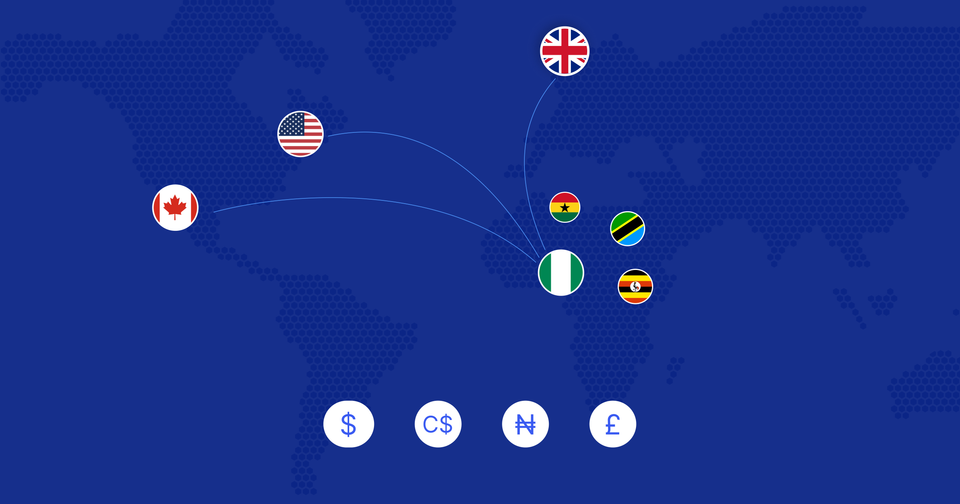What Are Remittances? A Complete Guide

According to the World Bank, Nigeria received about $20 billion in remittances in 2023 alone. This is one of the highest in Sub-Saharan Africa. That’s more than the country earned from crude oil exports in the same year. Yes, you read that right. From medical bills in Ibadan to school fees in Enugu, these quiet, regular transfers from people abroad fuel everything from survival to dreams. This flow of money is what we call remittances and it’s not just a financial system. It’s a global lifeline.
But what exactly is a remittance? How does it move across borders? And how can you send it securely, quickly, and with the best value? Let’s break it all down, no jargon, no fluff, just real talk.
What Is a Remittance?
A remittance is money that is sent, usually by a foreign worker, to family or friends in their home country. It’s most often used to refer to cross-border personal transfers. Simply put, it’s money with a mission to support, uplift, or sustain someone you love.
Types of Remittances
Not all remittances are the same. From how they’re sent to where they’re headed, each type serves a different purpose. Whether you're supporting family back home or making a cross-border payment, understanding the different types of remittances helps you choose the safest and most effective way to send money. Let’s break them down.
Want your remittance to reach home fast and safe? Try Zole—built for Nigerians abroad.
Why Remittances Matter
In countries like Nigeria, remittances:
- Support entire households
- Fund healthcare, housing, and education
- Stimulate local economies, especially in rural areas
- Act as a financial cushion during inflation or job loss
How Remittances Are Sent
Remittances can be delivered through:
- Apps like Zole
- Traditional banks (telegraphic/wire transfers)
- Money transfer companies (e.g., Western Union)
- Postal orders (very rare today)
Each method has pros and cons:
Zole removes the stress of fees, codes, and queues. Just log in, send, and get notified when it lands.
Step-by-Step: How to Send a Remittance from Canada to Nigeria
Choose a Platform
Pick a regulated app like Zole, your bank, or a transfer service.
Set Up an Account
Provide your details and verify your ID (especially for apps).
Add Your Recipient
Input their name, location, and bank/mobile account details.
Enter Amount
Choose currency and amount you want to send.
Confirm Exchange Rate and Fees
Always check the cost and rate before sending.
Send & Track
Get notifications once the money is delivered.
How to Pick the Best Remittance Method
Use this mini checklist when choosing a method:
✅ Is it licensed and secure?
✅ Are the fees clear and affordable?
✅ How fast will the money get there?
✅ Can I track the transfer?
✅ Is customer service available?
Zole ticks all the boxes—and then some more.
FAQs About Remittances from Canada to Nigeria
1. How much money can I send at once?
Most platforms like Zole allow you to send up to the equivalent of ₦5,000,000 per transaction depending on your verification level.
2. Are remittances taxed in Nigeria?
Currently, personal remittances are not taxed. However, fees may apply on the sender’s side.
3. What’s the safest way to send money home?
Use licensed platforms or banks. Avoid handing over cash to unregulated agents.
4. Can I cancel or reverse a remittance?
Only if it hasn’t been delivered. Each platform has its own policy, so check first.
5. What happens if I enter wrong recipient details?
Transfers may fail or go to the wrong account. Always double-check before sending.
6. What’s the best time to send money?
When exchange rates are favorable. Apps like Zole notify you of good rates.
7. How can my family in Nigeria receive the money?
Via bank account, mobile wallet, or cash pickup—depending on the service you use.
You May Also Want to Read:
Sending Money Home: Balancing Family Support and Investing for Your Future
Safety Tips for Sending Money Abroad (Avoiding Scams and Fees)
How to Send Money from Canada to Nigeria Easily and Securely with Zole
Final Thoughts
Remittances are not just economic—they’re emotional. They speak of responsibility, sacrifice, and love from afar. Whether it’s ₦20,000 or ₦2 million, what matters is the life it touches back home.
You don’t have to be a financial expert to do it right. You just need the right platform, clear info, and confidence that your money will reach where it matters most.
The Zole Blog is more than just a collection of articles — it’s a vibrant community of Nigerians in Canada and beyond, navigating new beginnings, celebrating milestones, and learning through every step of the journey. We share real-life experiences, practical travel advice, money transfer tips, and so much more to help make your international life simpler, smarter, and more rewarding. Click here to subscribe.

Comments ()